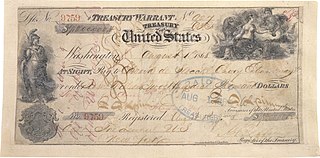 W
WAndrew Johnson was the 17th president of the United States, serving from 1865 to 1869. He assumed the presidency as he was vice president at the time of the assassination of Abraham Lincoln. Johnson was a Democrat who ran with Lincoln on the National Union ticket, coming to office as the Civil War concluded. He favored quick restoration of the seceded states to the Union without protection for the former slaves. This led to conflict with the Republican-dominated Congress, culminating in his impeachment by the House of Representatives in 1868. He was acquitted in the Senate by one vote.
 W
WThe presidency of Andrew Johnson began on April 15, 1865, when Andrew Johnson became President of the United States upon the assassination of President Abraham Lincoln, and ended on March 4, 1869. He had been Vice President of the United States for only 42 days when he succeeded to the presidency. The 17th United States president, Johnson was a member of the Democratic Party before the Civil War and had been Lincoln's 1864 running mate on the National Union ticket, which was supported by Republicans and War Democrats. Johnson took office as the Civil War came to a close, and his presidency was dominated by the aftermath of the war. As president, Johnson attempted to build his own party of Southerners and conservative Northerners, but he was unable to unite his supporters into a new party. Republican Ulysses S. Grant succeeded Johnson as president.
 W
WThe Alaska Purchase was the United States' acquisition of Alaska from the Russian Empire. Alaska was formally transferred to the United States on October 18, 1867, through a treaty ratified by the United States Senate.
 W
WDuring his presidency, Andrew Johnson, the 17th president of the United States, saw multiple efforts to impeach him.
 W
WThe history of U.S. foreign policy from 1861 to 1897 concerns the foreign policy of the United States during the presidential administrations of Abraham Lincoln, Andrew Johnson, Ulysses S. Grant, Rutherford B. Hayes, James A. Garfield, Chester A. Arthur, Grover Cleveland, and Benjamin Harrison. The period began with the outbreak of the American Civil War 1861 and ended with the 1897 inauguration of William McKinley, whose administration commenced a new period of U.S. foreign policy.
 W
WThe inauguration of Andrew Johnson as the 17th president of the United States was held on April 15, 1865, at Kirkwood House in Washington, D.C., following the assassination of President Abraham Lincoln. The inauguration marked the commencement of Andrew Johnson's only term as president. Chief Justice Salmon P. Chase administered the presidential oath of office. This was the third non-scheduled, extraordinary inauguration to take place. After the ceremony, President Johnson gave an impromptu inaugural address, which began with him begging the cabinet to remain with him and then attacking the Confederacy with such venom, that one witness remarked "It would have been better had he been struck dumb."
 W
WFollowing is a list of all Article III United States federal judges appointed by President Andrew Johnson during his presidency. Johnson appointed only 9 Article III federal judges during his presidency, all to United States district courts. Andrew Johnson is one of only four presidents who did not have an opportunity to appoint a judge to serve on the Supreme Court. In April 1866 he nominated Henry Stanbery to fill the vacancy left with the death of John Catron, but the Republican Congress eliminated the seat with the passage of the Judicial Circuits Act. One of Johnson's district court appointees, Samuel Blatchford, would later be appointed to the Supreme Court by Chester A. Arthur.
 W
WThe Reconstruction era was a period in American history following the American Civil War (1861–1865); it lasted from 1865 to 1877 and marked a significant chapter in the history of civil rights in the United States. Reconstruction, as directed by Congress, abolished slavery and ended the remnants of Confederate secession in the Southern states; it presented the newly freed slaves as citizens with (ostensibly) the same civil rights as those of other citizens, and which rights were guaranteed by three new constitutional amendments, the 13th, 14th, and 15th Amendments. Reconstruction also refers to the attempt by Congress to transform the 11 former Confederate states; and it refers to the role of the Union states in that transformation.
 W
WSwing Around the Circle refers to a disastrous speaking campaign undertaken by United States President Andrew Johnson between August 27 and September 15, 1866, in which he tried to gain support for his mild Reconstruction policies and for his preferred candidates in the forthcoming midterm Congressional elections. The tour's nickname came from the route that the campaign took: "Washington, D.C., to New York, west to Chicago, south to St. Louis, and east through the Ohio River valley back to the nation's capital".
 W
WTennessee Johnson is a 1942 American film about Andrew Johnson, the 17th president of the United States, released by Metro-Goldwyn-Mayer. It was directed by William Dieterle and written by Milton Gunzburg, Alvin Meyers, John Balderston, and Wells Root.